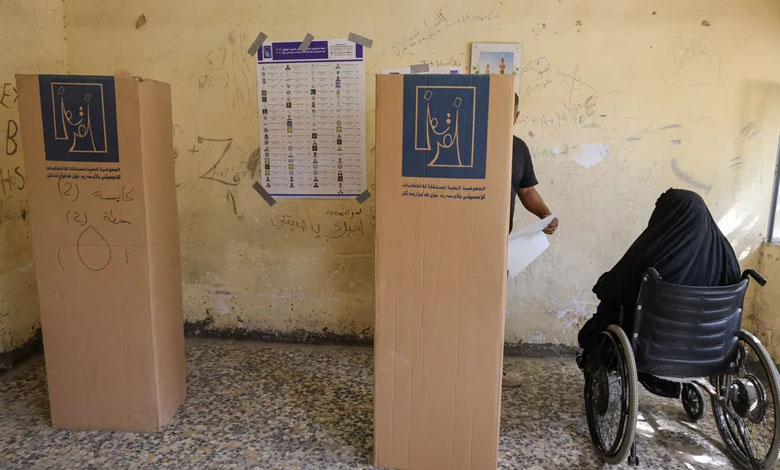Local elections in Iraq spark a dispute among Shiite factions

Tensions are prevailing between armed Shiite factions due to the provincial council elections, which are pivotal local elections in the Iraqi political scene and which secure in part the influence and interests of those forces.
An Iraqi political source revealed on Wednesday a state of tug-of-war between the armed wings of political forces that plan to run in the provincial elections, according to the Iraqi Kurdish news agency Shafak News.
The dispute revolves around AAH’s participation in the elections as part of a political alliance or its exclusion from participating in its own list. Asaib Ahl al-Haq was born out of the Sadrist mainstream’s defection in past years and quickly became one of the most powerful Shia factions.
The Shafaq News agency quoted an Iraqi political source as saying, “A proposal has been discussed in recent days to revive the Al-Fateh alliance, which participated in the parliamentary elections and includes political currents with armed factions, along with the joining of the Ataa Alliance led by Falih al-Fayyadh, the head of the Popular Mobilization Commission.”
The source explained that the proposal is accepted by several blocs, including the Sond bloc led by Ahmed al-Asadi, the Ataa bloc, and other political forces, with the exception of the Asaib Ahl al-Haq movement from this alliance, which is urged to participate on a separate list, amid concerns that Asaib Ahl al-Haq may seize the majority of local seats within this alliance.
“Discussions about this proposal are ongoing and have not settled yet, but it highlights a battle of interests and influence between Shia forces and their armed wings.”
These developments come as the Sadrist Movement prepares to run in the provincial council elections, indicating a change in the electoral equation and what constitutes a gateway for the Sadrists to return in strength to political life after long months of isolation at the behest of the movement’s leader, Muqtada Al-Sadr.
Competition is expected to be fierce because of the importance of the provincial councils, which according to the Iraqi constitution have wide powers. They are not controlled or supervised by any ministry and have wide administrative and financial powers.
The latest developments come a day after the Iraqi government, led by Mohammed Shiyaa al-Sudani, backed by the Shia Co-ordination Framework Forces, set December 18th as the date for elections, which were originally scheduled for November 6th.
The local elections come nearly 10 years after the last time they were held and will involve 15 provinces, with the exception of the autonomous Kurdistan region of Iraq.
Following mass protests, the Iraqi parliament voted in 2019 to dissolve the provincial councils and end their work. The decision was an attempt to contain public anger, with protesters accusing the councils of being involved in financial and administrative corruption.












